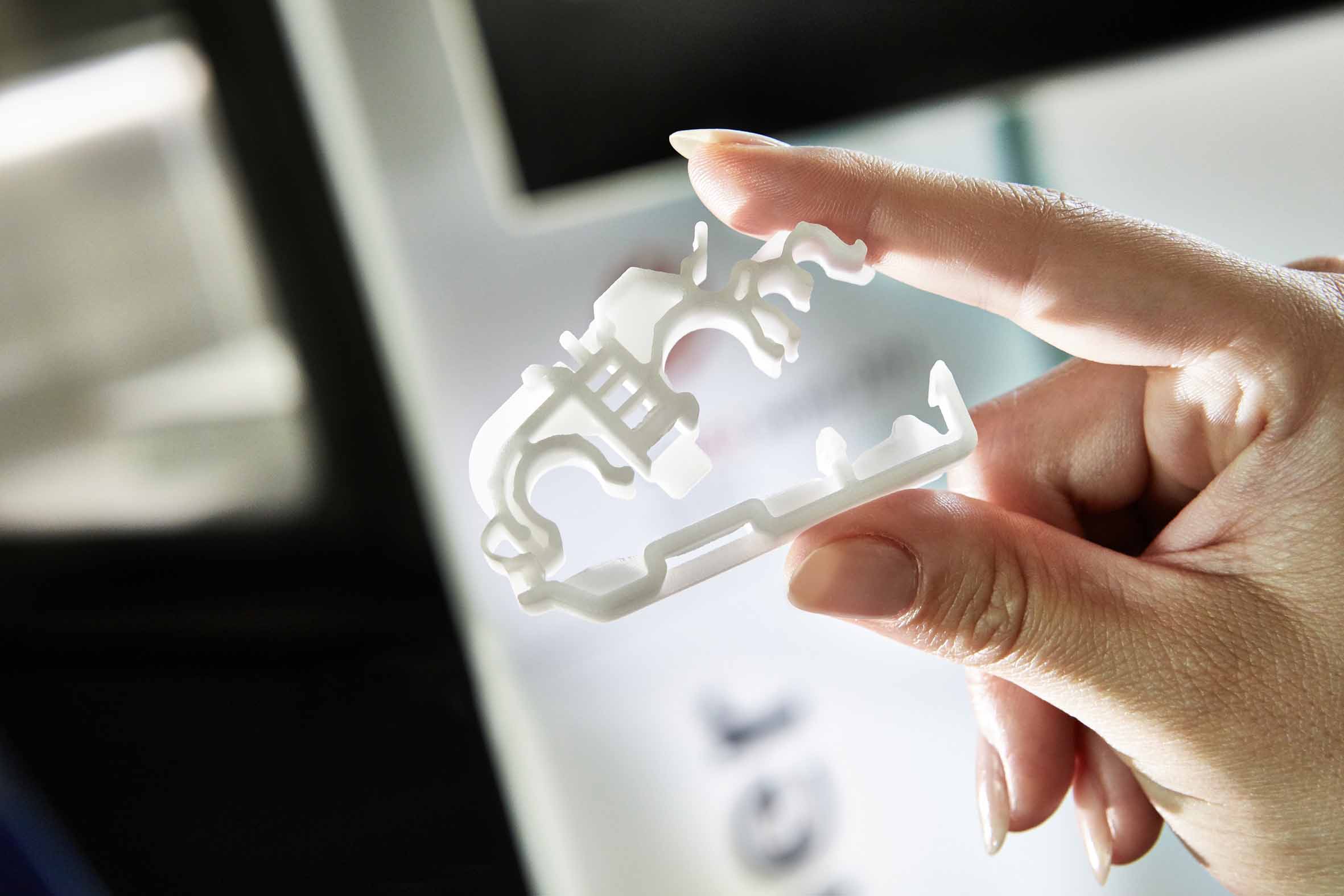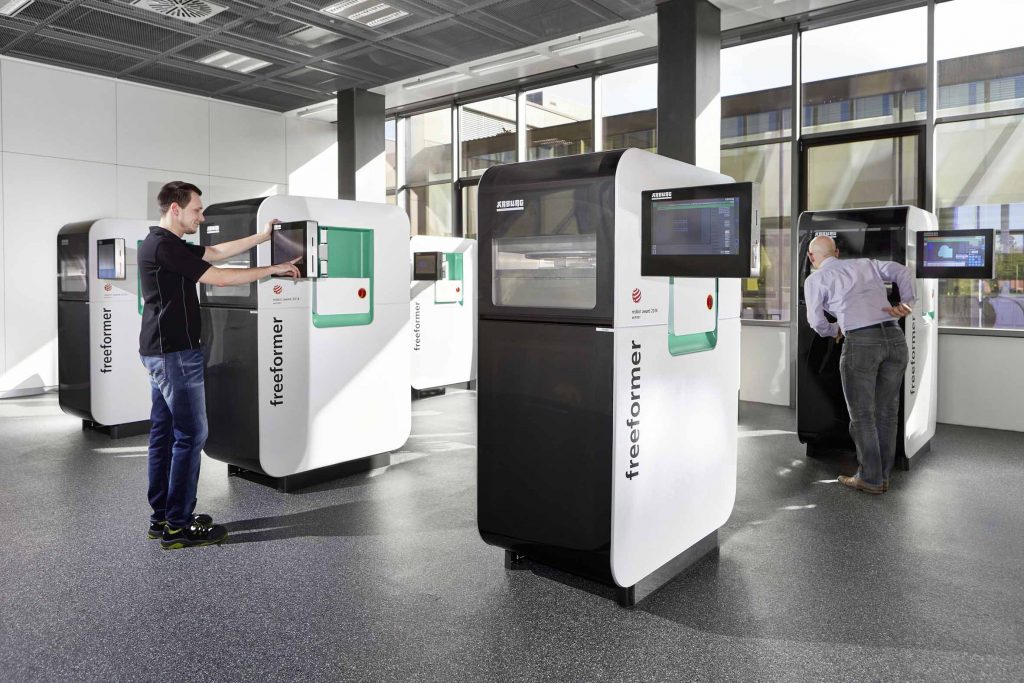
More additive parts, more material, more experience
ARBURG Plastic Freeforming (APF) “hands-on”: visitors evaluate parts for themselves
New material: Freeformer processes standard, semi-crystalline PP and Armat 12 support material
Open system: customers can qualify their own original materials with the Freeformer
Lossburg, 28/9/2017
Arburg will be presenting a new concept at the leading trade fair for additive manufacturing, the formnext in Frankfurt (Germany), to be held from November 14 to 17, 2017: More than 40 examples of functional components will be on view at stand E70 stand in hall 3.1, impressively demonstrating the industrial capabilities of Arburg Plastic Freeforming (APF). At four interactive stations, visitors to the trade fair will be able to “evaluate” the quality of selected parts produced using the APF process for themselves. A Freeformer exhibit will also process standard PP (Moplen), as well as the specially developed Armat 12 support material “live” to produce cable clips. Arburg experts will use a second Freeformer to explain the functionalities and wide range of applications of the open system.
“Our aim at this leading trade fair is to demonstrate to existing and prospective customers in practice that the Freeformer and the APF process are not only suitable for prototyping, but also for industrial additive manufacturing,” explains Eberhard Lutz, Director Freeformer Sales at Arburg. “That’s why in addition to two Freeformer exhibits, we’ve also set up four interactive stations where visitors will be able to pick up a total of twelve parts, enabling them to evaluate their functionality and quality for themselves “hands on”. Products made from standard PP, as well as functional components from further original materials will be shown in the areas of medical technology and aviation.”

Since early 2017, six Freeformers have been used to produce samples for prospective customers at the Arburg Prototyping Center.
Freeformer now also processes semi-crystalline materials
“By qualifying standard PP and the new support material Armat 12, we have achieved a significant breakthrough in extending the range of materials suitable for industrial additive manufacturing,” says Dr Eberhard Duffner, Divisional Manager Development and Plastic Freeforming at Arburg. “The trend in this sector is quite clearly towards even faster and higher-quality production of genuine functional parts.”
At the formnext 2017, a Freeformer will use PP (Moplen) and the new Armat 12 support material, which is subsequently dissolved in a water bath, to produce fully functional cable clips. The delicate yet durable structures have the click effect typically found in injection moulding.
Wide range of support materials
During the development of new support materials for the Freeformer, Arburg collaborates with universities and established material partners, etc. The new water-soluble support material Armat 12 has been specially designed for processing PP. The water-soluble support material Armat 11 has also been significantly improved upon. Moreover, Armat 21, an alkaline-soluble alternative, has been available since early 2017.
Open system
One great advantage of APF is that the process can be adapted to the requirements at hand and not the other way round. In addition to amorphous standard granulates such as ABS, PA and PC, the material range includes many other materials. These include, for example, elastic TPE, the high-temperature plastic PEI, medical PLA, PC approved for the aviation industry, and now also semi-crystalline PP.
The open system affords users independence: Freeformer customers can qualify their own original material and optimise the freely programmable process parameters specifically to the relevant application – starting from the settings for the geometrical slicing and temperature, through to discharge. All of this process data can be saved and analysed, and designs can be optimised quickly in order to produce prototypes and functional parts quickly and cost-effectively with the Freeformer. The better the process is configured, the better the quality of the part produced. Mechanical stress tests show that component densities of up to 95 percent and tensile strengths of up to 97 percent can be achieved control compared to injection moulding by means of adapted process.
*Title picture :At the formnext 2017, a Freeformer will use standard PP (Moplen) to produce cable clips with delicate structures and click effect in an additive manufacturing process.
Press release /Photos from ARBURG